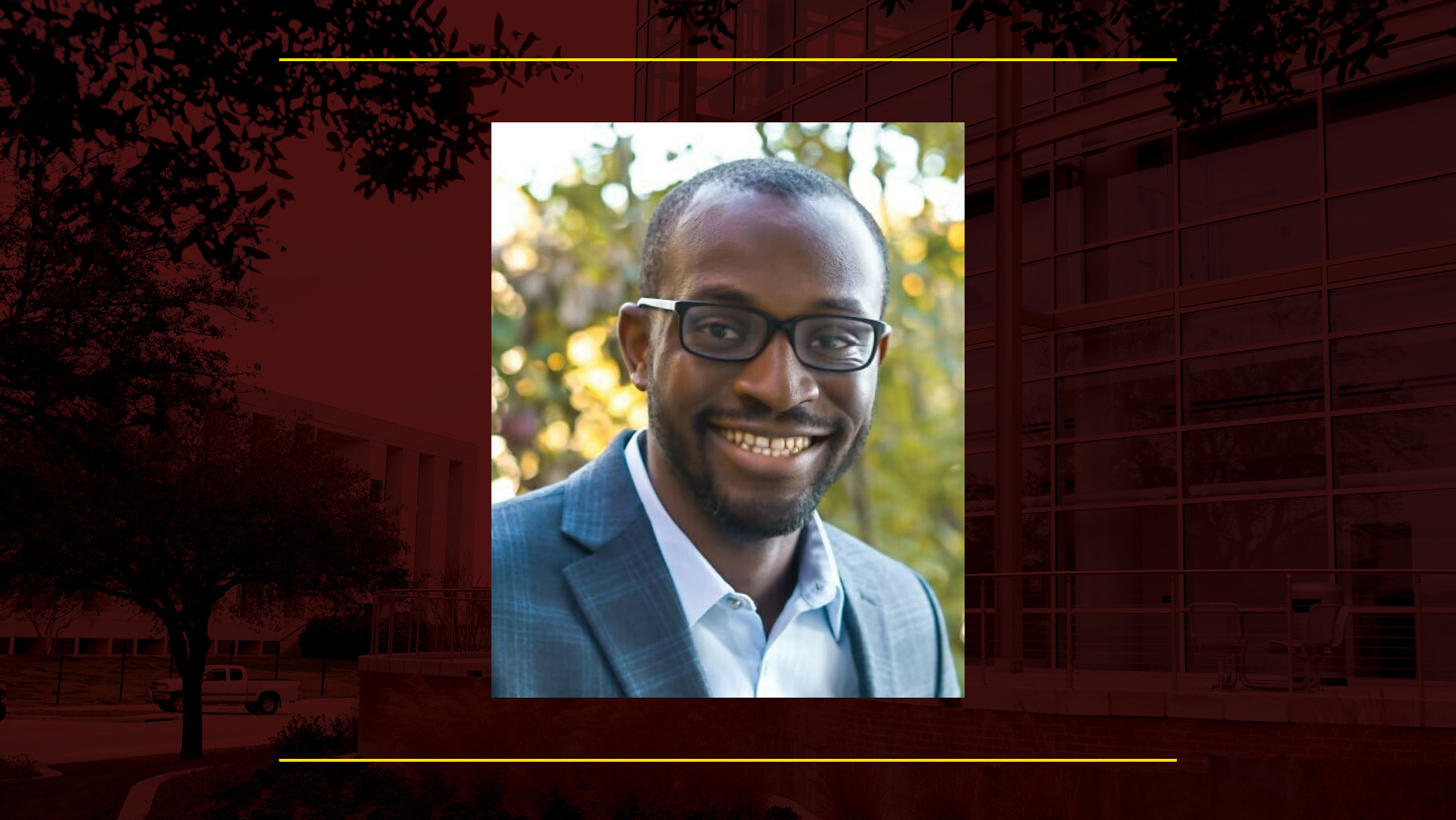
Former Texas A&M University chemical engineering student Chibueze Amanchukwu has been named one of Chemical and Engineering News’ Talented 12.
Chemical & Engineering News is the American Chemical Society’s online publication that tracks research advances, business policy trends and chemical safety practices related to the chemistry field.
Every year the publication chooses 12 early-career researchers who are using chemistry to make the world a better place and highlights their work in an annual Talented 12 issue.
After graduating from Texas A&M in 2012, Amanchukwu became an assistant professor at the University of Chicago in 2020. His work focuses broadly on long-duration storage, which he became interested in during his time as an Aggie.
“My foundation as an engineer came from my first degree at A&M,” Amanchukwu said. “The basic principles of my research are about how to understand and control the intermolecular interactions that affect properties like transport and reaction kinetics. Those principles have stayed with me since my time at A&M.”
Amanchukwu’s first exposure to batteries was as an intern at DuPont, and he quickly became interested in their operation. His research now focuses on enabling long-duration electrical (batteries) and chemical energy storage for a sustainable energy future.
The basic principles of my research are about how to understand and control the intermolecular interactions that affect properties like transport and reaction kinetics. Those principles have stayed with me since my time at A&M.
According to Amanchukwu, his team is interested in modifying electrolyte and ion solvation behavior to control electrochemical processes occurring in batteries and electrocatalytic transformations. This includes challenges such as carbon dioxide capture and conversion.
What the team has done is couple data science, computation, synthesis, and characterization to understand ion transport in electrolytes.
“The idea is that if we are to transition to renewable energy, we need to store this intermittent energy in some way,” Amanchukwu said. “One can store it in batteries or you could use renewable electrons to convert CO2 to fuels and chemicals as another storage medium.”
Additionally, the team uses data science and artificial intelligence tools to accelerate the discovery of these electrolyte compounds.
Amanchukwu and his team have learned a great deal from pharmaceuticals and drug discovery processes when studying electrolytes and using them for batteries and electrocatalysis.
“This focuses on how electrolytes affect electrochemical processes,” Amanchukwu said. “If you discover something using AI, it's not enough to predict that something will be good, you have to go into the lab and actually make it. We have made a big effort to synthesize and characterize new electrolytes and actually put them in batteries.”
Amanchukwu hopes his research will inspire future chemical engineering students to make an impact on this ever-changing world.